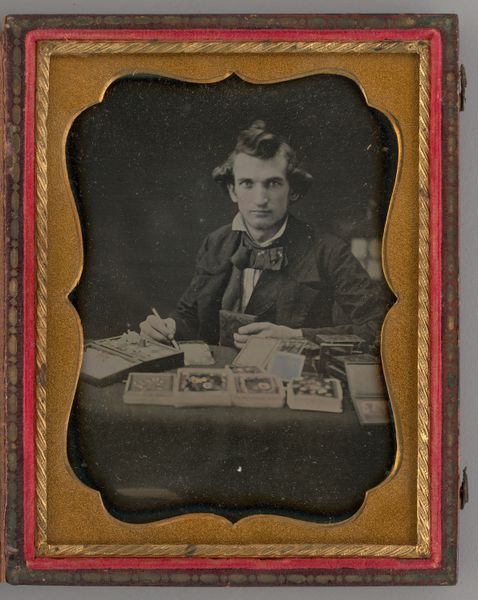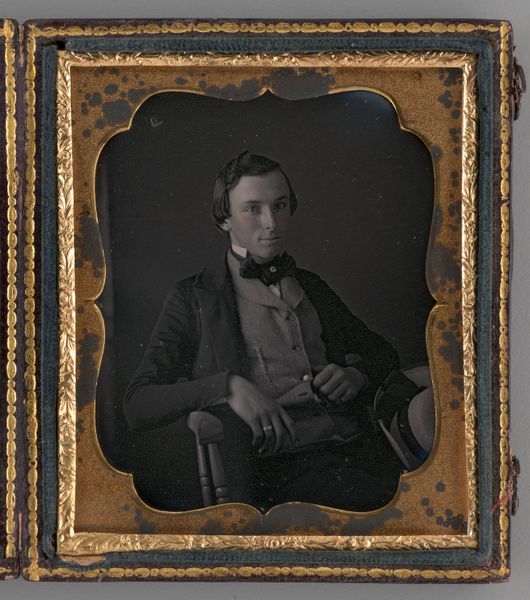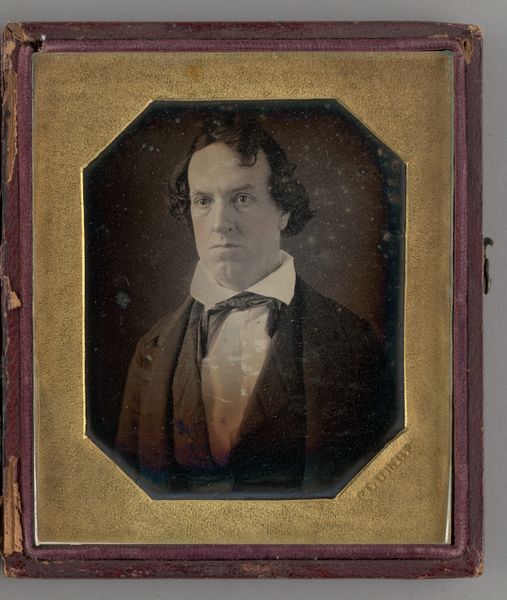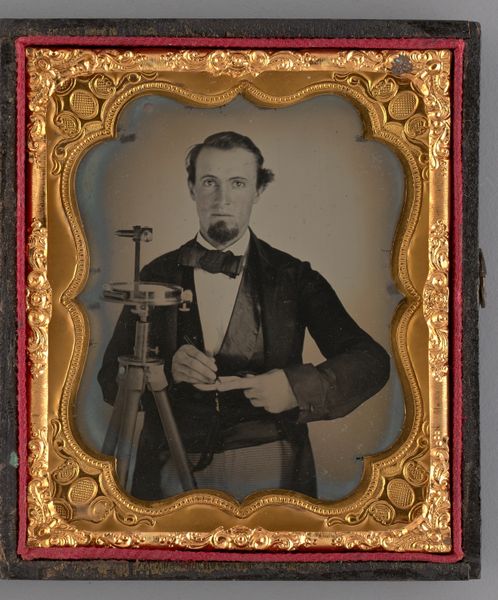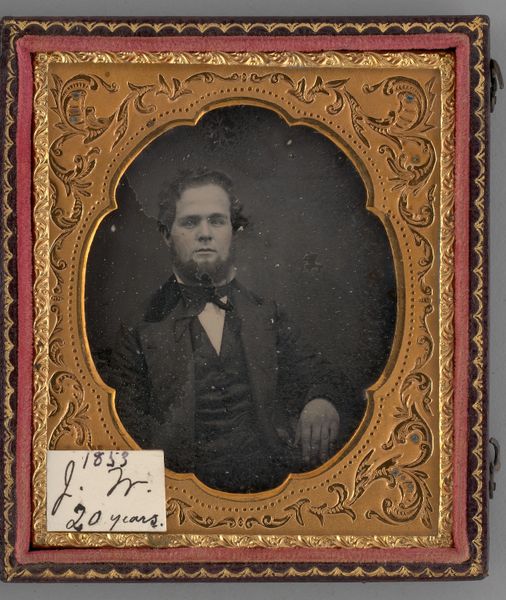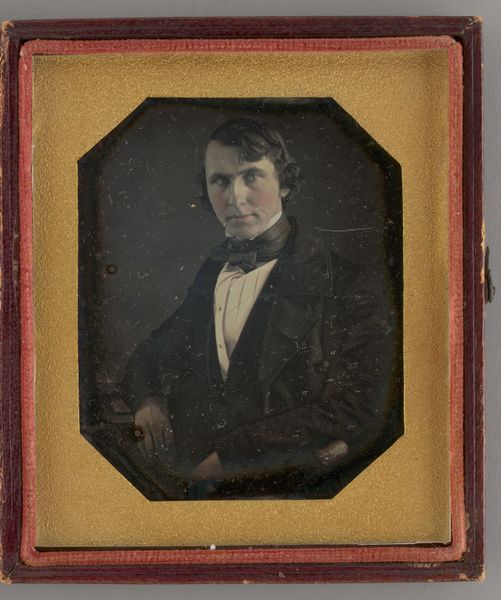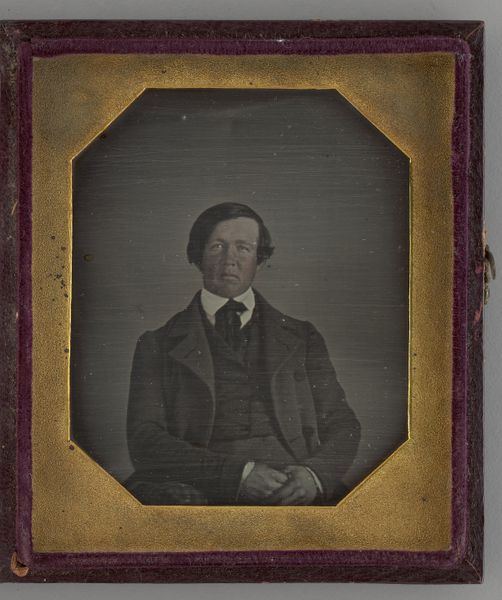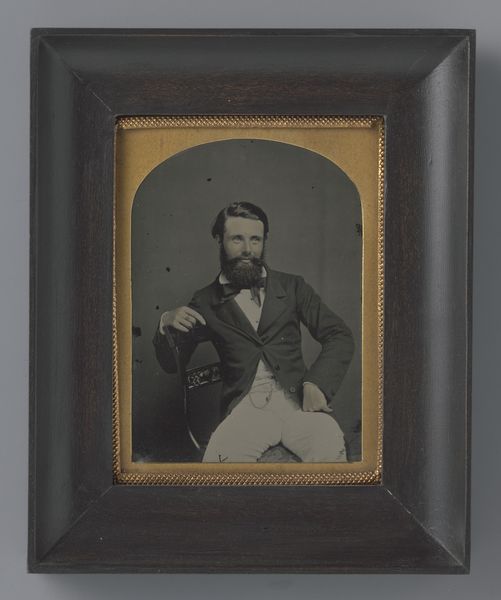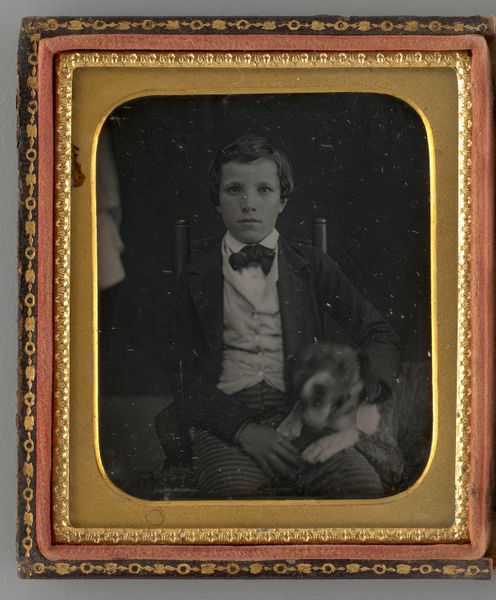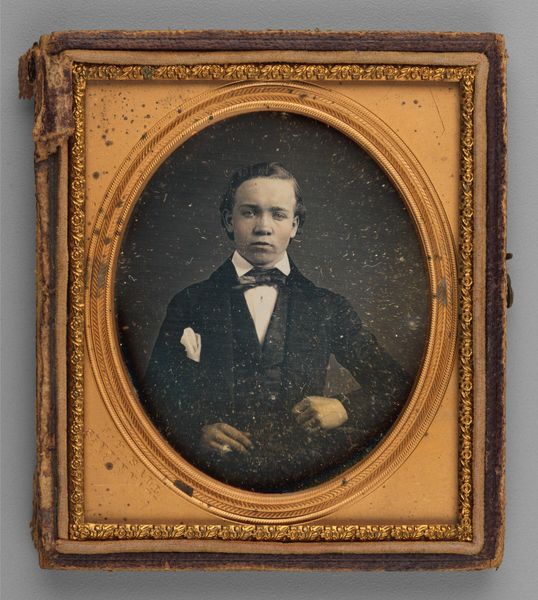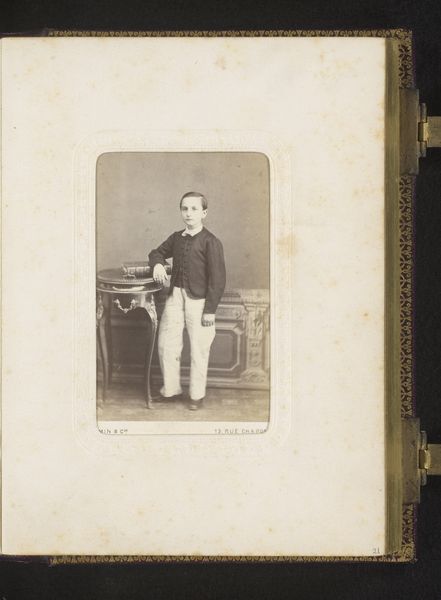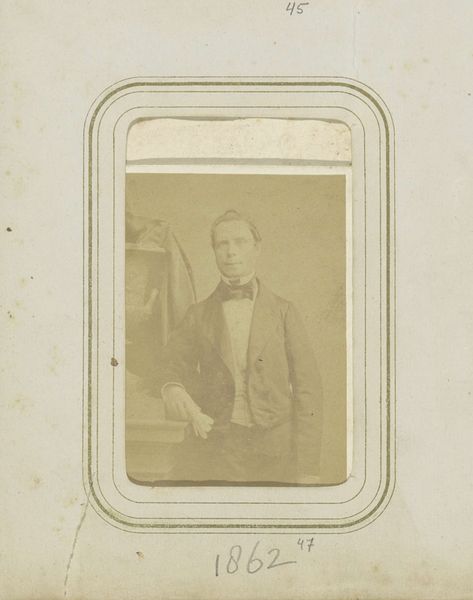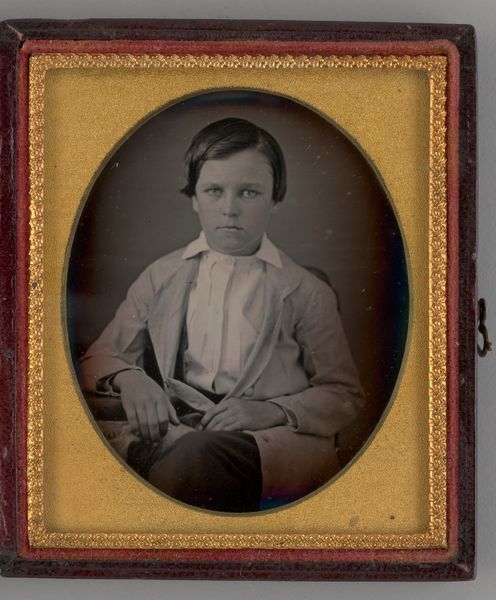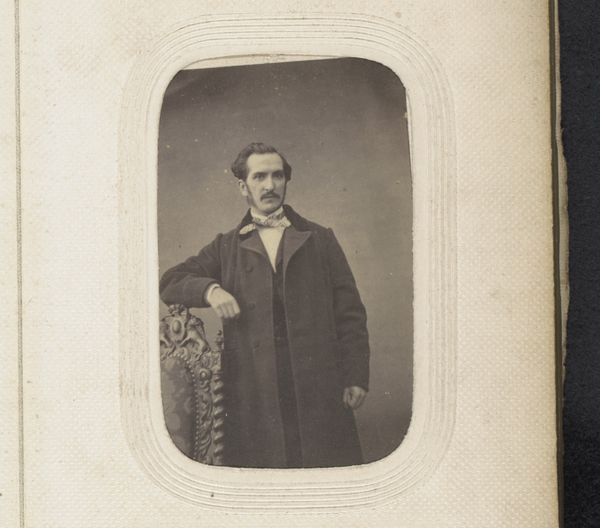
daguerreotype, photography, pen
#
portrait
#
16_19th-century
#
daguerreotype
#
photography
#
men
#
united-states
#
pen
#
history-painting
#
realism
Dimensions: 8.2 × 7 cm (3 1/4 × 2 3/4 in., plate); 9.3 × 16.4 × 1.1 cm (open case); 9.3 × 8.2 × 2 cm (case)
Copyright: Public Domain
This daguerreotype, housed in a decorative case, presents a portrait of a carpenter from an unknown time and place. The image's power lies in its directness. The man looks out at us, his tools arranged in front of him, marking his trade and social position. In a society undergoing rapid industrialization, like mid-19th century America, the image of a skilled worker carried complex meanings. It spoke of self-reliance, honest labor, and the dignity of craftsmanship, values often contrasted with the perceived alienation of factory work. The daguerreotype itself, as a relatively new technology, reflects this tension between tradition and progress. While offering a novel means of representation, it also provided a way to preserve and celebrate older forms of labor. Understanding this portrait requires us to delve into the social and economic history of labor. Trade union records, census data, and business directories all offer valuable insights into the lives and status of artisans like this carpenter. They help us understand the artwork and its cultural context.
Comments
No comments
Be the first to comment and join the conversation on the ultimate creative platform.
